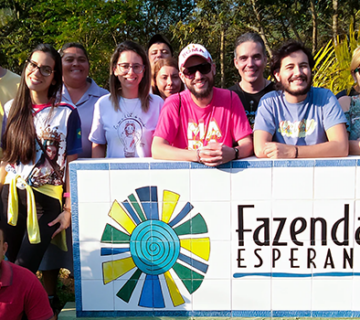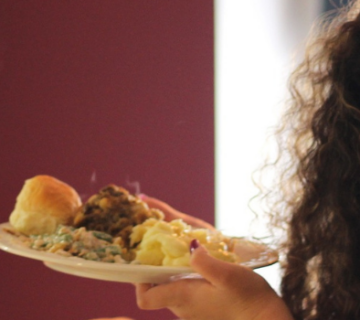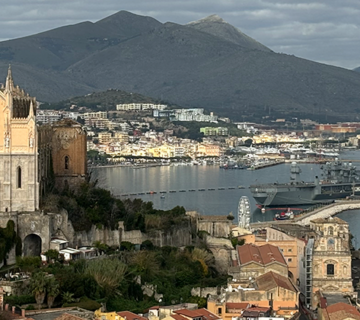 Uruguay, on the border between Brazil and Argentina, is one of the most developed countries in Latin America and has the most equal distribution of riches. Nevertheless, it is also possible to find areas of extreme poverty such as the Borro quarter, north of Montevideo. This neighbourhood is inhabited by some 4,000 families, nearly 26,000 people. In tourist brochures it is marked as a place to be avoided, since many of its inhabitants live by their wits on the edge of legality. And it is here that the Nueva Vida social centre was begun.
Uruguay, on the border between Brazil and Argentina, is one of the most developed countries in Latin America and has the most equal distribution of riches. Nevertheless, it is also possible to find areas of extreme poverty such as the Borro quarter, north of Montevideo. This neighbourhood is inhabited by some 4,000 families, nearly 26,000 people. In tourist brochures it is marked as a place to be avoided, since many of its inhabitants live by their wits on the edge of legality. And it is here that the Nueva Vida social centre was begun.
Its origins go back to 1992, thanks to the work of Sr Eva Aguilar from the Congregation of the Sisters Slaves of the Sacred Heart and the assistance of her community, until 2000 when she was given another assignment. The bishop then appealed to the Focolare Movement, which took charge of the neighbourhood’s needs and began the Nueva Vida project, a project for “new life” (nueva vida) brought about through love for the poorest and most marginalized. In 2001 the bishop officially entrusted this nascent social project to CODESO (Communion for Social Development), a civil entity founded by members of the Focolare Movement.
The primary objective of Nueva Vida is to create a positive environment for the growth and development of children, teenagers and their families, beginning with those in greatest difficulty, using an individualized and “holistic” approach. The activities are carried out in two 300 square-metre wharehouses, and are organized according to age groups. There is a kindergarten for children up to five years of age, a Children’s Club (6-12 years) and a Youth Centre (13-18 years).
Today Nueva Vida Centre is a permanent part of the quarter, with a well-constructed building for forty workers, and the recognition of local educational authorities. It regularly welcomes more than 250 children, teenagers and young people involved in extracurricular activities including psycho-motor skills for the youngest, artistic workshops, after-school programmes, languages classes, recreational, cultural and environmental activities, and professional workshops. The centre also provides a daily meal, paediatric medical care and legal assistance thanks to financial aid from Distance Support from the New Families Association.
 Natural Neighbourhood Outreach
Natural Neighbourhood Outreach
After a few years of working with children and teenagers, the directors of Nueva Vida programs saw the need of working also with their mothers. The typical family is comprised of a young mother with four to five children; and so it is the woman who is responsible for raising the children and supporting the family. Economic hardship and family instability (absenteeism among fathers at a rate of 80%) have produced negative effects and social isolation.
One answer has been the Natural Neighborhood Outreach project, which proposes the development of woman entrepreneurship, through courses on wool processing (dyeing, spinning, weaving and packaging.) The project which is fully supported by AMU, was begun in 2007. Up until the present it has involved more than twenty women, who have learnt a trade and acquired professional status which is very rare in this environment.
One of the professional course directors remarked: “Uruguay is a very secular land and culture, in which it is not common so speak of religious aspects and values. One day we met to talk about one of the main attributes of the project, that is, of the communion that we strive to live and the spirituality that nourishes us. After having listened, everyone told what they had understood about putting into practice reciprocity of this gift-giving. Perhaps their economic situation is not changing very quickly, but one thing that is certainly changing is the way of facing it and of living as a family.”


 Italiano
Italiano Español
Español Français
Français Português
Português


